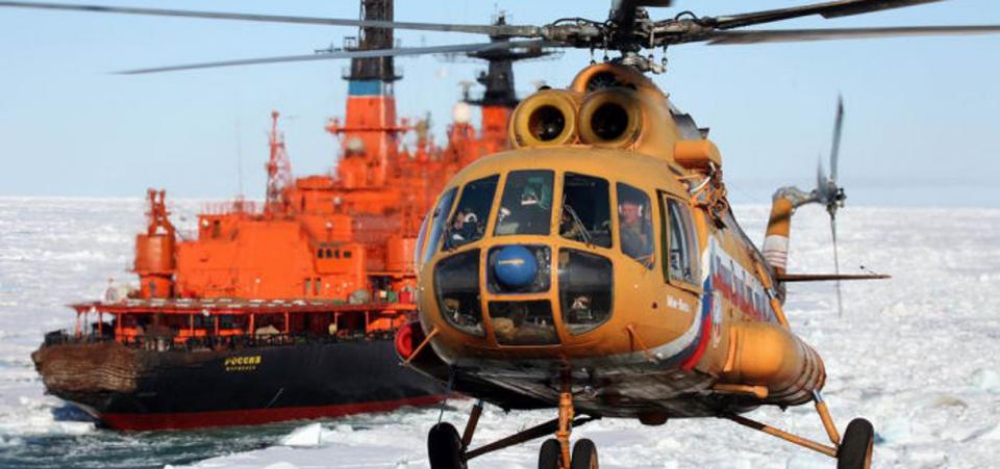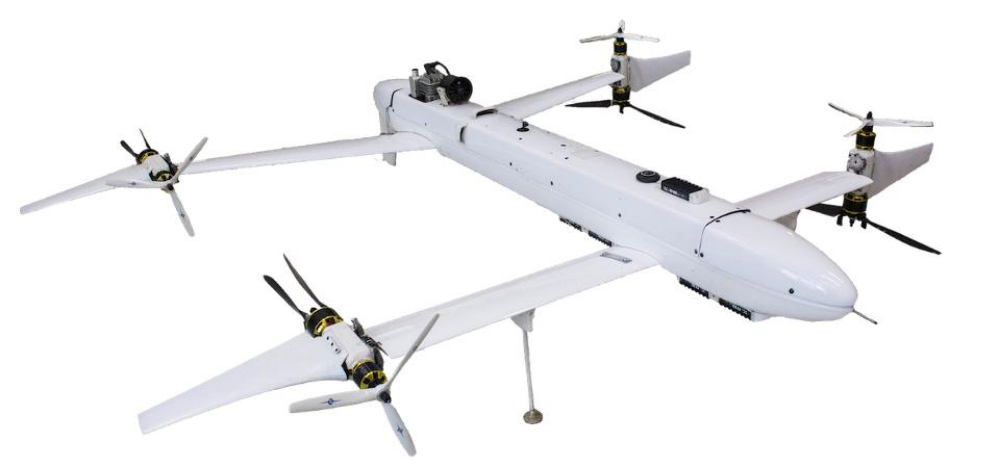Russian defense firm Rostec is partnering with Aeroxo, a small startup based in Moscow and Riga, to make tilt-rotor drones for dangerous Arctic operations.
“The Roselektronika holding (part of Rostec) will begin production of unmanned convertiplanes, which in the future will be able to operate in the Far North,” RIA News reported.
According to RIA News, Rostec and Aeroxo initially will build Aeroxo’s existing ERA-100, a four-engine tilt-rotor with a six-foot wingspan, a 5.5-pound lifting capacity and a range of around 75 miles at a top speed of 75 miles per hour.
In the future, the two companies will work on a much larger drone with a 175-pound payload, according to the RIA News report. The Aeroxo drones can carry a wide range of sensors including cameras and mapping-lasers.
“This is both a technical and a commercial decision by Rostec, one of Russia’s largest defense-industrial conglomerates,” said Samuel Bendett, an advisor at the Center for Naval Analyses in Virginia.
“Presently and for the near future, Russia will be investing in its Arctic infrastructure, both to tap the natural resources and to secure the Northern Route for the impending rise of sea-based traffic,” Bendett said. “A tiltrotor aircraft offers the advantages of both helicopter and aircraft in terms of lift capacity, in-flight stability and airspeed.”
Russian industry is working on several tilt-rotor drones. Russian Helicopters, the national rotorcraft-manufacturer, has displayed tilt-rotor drones at various military and defense expos, Bendett said. “Rostec is positioning itself in the rapidly maturing market for these kinds of products in order to retain a market share.”
The Arctic can be unforgiving for manned aircraft. Crews must “contend with mountain ranges, icing conditions, volatile sea states, unpredictable sea ice, extreme temperatures and large swings in seasonal daylight, all with a lack of support or communications infrastructure,” the California think-tank RAND explained.
Replacing manned vehicle with drones could save money and lives, Bendett said.
“The Russian Far North is a dangerous environment for many manned aircraft, and the Russian industry and military is turning to unmanned systems specifically developed for the Arctic weather conditions as a way to save money, expand capabilities and prevent potential human pilot losses.”
Source: Forbes


